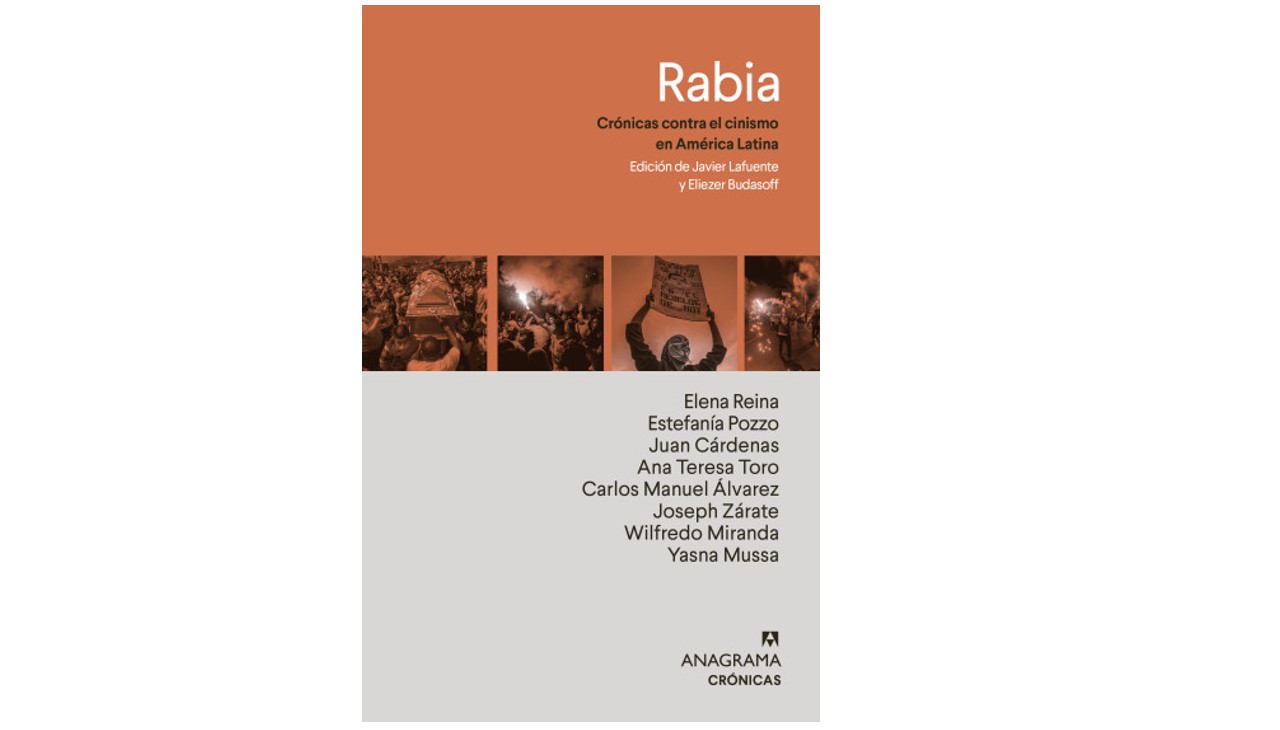
'Rabia': Eight Latin American journalists in their 40s portray the harsh reality of their continent
An x-ray of the open wounds of Latin America in recent years
How does an entire generation see Latin America?
In Rabia (Anger), eight young Latin American journalists now in their 40s describe the fissures that have opened up in their countries in recent years.
From the feminicidal Mexico portrayed by Spanish journalist Elena Reina to Estefanía Pozzo's Argentina, where women overthrew the political obstacles to abortion; from the Colombian Pacific crossed by violence and racism that is the focus of Juan Cárdenas, to the Puerto Rico of hurricanes that can no longer sustain the memory of "the happy colony" described by journalist Ana Teresa Toro; from a Cuba that does not want to see how a group of young people educated by the Revolution, such as Carlos Manuel Álvarez, question and demand change, to the Peru of Joseph Zárate, where young people overthrew a president and paid with their lives; from Ortega's Nicaragua (challenged by Lesther Alemán, a young man now imprisoned and formerly exiled, like journalist Wilfredo Miranda) to Yasna Mussa's Chile, which disproved the fantasy of Latin America's "oasis" and began to dismantle the dictatorship's legacy.
RELATED CONTENT
As the book's editors, El País America journalists Javier Lafuente and Eliezer Budasoff, point out in the prologue, "the chronicles show, with the turns of phrase, sayings and expressions of each country, the entrails of their societies in living sore. That is what this book is about: the moment when a crack opens up in the facade of normality and we see what our societies are made of. And then it is no longer possible to stop seeing it."
Some of the participating journalists live in exile, such as Carlos Manuel Álvarez and Nicaraguan journalist Wilfredo Miranda.
"Behind each one of them there is a very hallucinating story," reported online media outlet Coolt Lafuente, with the hope that the book serves to bring Latin America closer to the Spanish public and to encourage curiosity about Latin America in general.
The book, Budasoff told El País during the Guadalajara International Book Festival, "reflects local dramas that illuminate a greater reality, that of inequality, machismo, precarious education, "problems that are found everywhere in our societies."
The editor affirms that those movements that generated so much hope "have set in motion transformations whose end is open, unpredictable."












LEAVE A COMMENT: